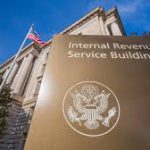The auditing business for retirement plans has been cleaned up over the years, and quite a few auditors who have no business conducting audits were moved aside by the Department of Labor (DOL), and further changes for the 2021 plan year are now in effect, including the end of the limited scope audit.
The limited scope audit was a cost-saving for plan sponsors when they used a corporate trustee that could self-certify trust statements
The limited scope audit will be replaced by an ERISA Section 103(a)(3)(C) audit.
Under this new standard, the auditor ultimately will be expressing an opinion on the plan financial statements, even though the auditor will still be permitted to exclude the investments from the audit if the information is appropriately certified.
Auditors will not be able to accept an audit engagement unless the plan sponsor acknowledges their responsibility to maintain a current plan document, administer the plan, and provide the auditor with a substantially complete draft of Form 5500 before the completion of the audit. The plan sponsor will need to provide written acknowledgment regarding their responsibilities for determining whether their plan qualifies to have an ERISA Section 103(a)(3)(C) audit, whether the investment information is prepared and certified by a qualified institution, whether the certification meets DOL requirements, and that the certified investment information is properly measured, presented and disclosed in the financial statements.
The auditor will need to consider the necessity to test specific plan provisions and the new audit report will contain a two-pronged opinion that is based on the audit and the procedures relating to the certified investment information.
So plan sponsors are going to need to spend more time preparing for and ensuring that they fully understand their responsibilities before their plan audit, as well as making sure the Form 5500 is completed earlier than years prior.







